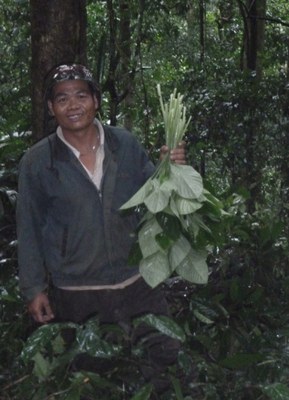The Forests Dialogue on Benefit Sharing in REDD+: Field Dialogue in Vietnam

TFD, along with the International Union for Conservation of Nature (IUCN), the Government of Vietnam’s Forestry Department (VNFOREST), and the Center for People and Forests (RECOFTC), hosted a workshop in Lam Dong Province, Vietnam. The Vietnam field dialogue (September 24-27, 2013) aimed to explore some key issues and lessons learned regarding the system of Payment for Forest Environmental Services (PFES) in Vietnam and how that experience might be useful for developing a national benefit sharing mechanism for REDD+ in Vietnam. This workshop followed an initial TFD Scoping Dialogue held in Washington, DC from March 23 -24, 2013. Three more field dialogues were planned in: Ghana (December 2013); Peru (in early 2014); and Mexico (later in 2014). TFD will produce a report on benefit sharing for the United Nations Framework Convention on Climate Change Conference of Parties 20 in Peru in 2014.
The Vietnam field dialogue began with two days of field trips to view different arrangements for forest protection and PFES. As she had previously worked in Vietnam, Dr. Williams shared some perspectives on Vietnam’s land tenure, forest management and forest protection contracts with other participants, and was active in interviews with community members. In two communes, villagers had selected which households would benefit from forest patrolling jobs, taking note of the government policy that priority be given to ethnic minority and poor households. A visit was made to a forest under State Forest Enterprise (SFE) management, where the SFE had chosen the poorest households to participate in forest patrolling work. Finally, the group visited an ethnic minority Ka’Ha village, which is piloting community management of a 500 hectare forest. The villagers will share the work and PFES contract payments equally among all the households.
The field trips were then followed by two days of meetings. The evolution of forest protection in Vietnam – from forest protection contracts to contracts under a PFES – was thoroughly discussed, as future REDD+ payments are envisaged to fit under the PFES framework. The Center for International Forestry Research (CIFOR) discussed four different “dialogues” about who should benefit based on comparative research in 13 countries and field work in Vietnam. The workshop considered different issues in designing and implementing benefit sharing systems, and diverse approaches to benefit-sharing, even within the same country. Dr. Williams was active in making technical contributions in the plenary discussions and working groups, and served as a rapporteur for one session.
Benefit sharing information will be incorporated into the upcoming United States Agency for International Development (USAID)/FCMC/United States Forest Service SES training workshop for Central and Western Africa, to be held in Ghana in February 2014.

